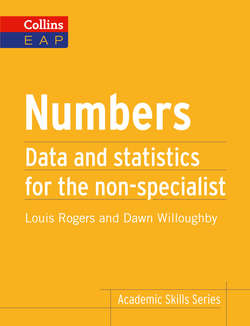Читать книгу Numbers: B2+ - Dawn Willoughby - Страница 17
2 Starting Primary Research
ОглавлениеAims
practise formulating research questions
understand the principles of sampling
learn how to formulate a hypothesis
Quiz
Self-evaluation
Read the statements below. Circle the answers that are true for you.
| 1 I know how to start a primary research project. | agree | disagree | not sure |
| 2 I know how to create an effective sample. | agree | disagree | not sure |
| 3 I know which research method is most appropriate for my aims. | agree | disagree | not sure |
| 4 I know how to formulate a hypothesis. | agree | disagree | not sure |
Early planning and good organization are key to a successful research project. What you decide to research can vary greatly depending on the field you are in, but there are two main starting points: formulating research questions, or formulating a hypothesis to test. Whether you choose one, the other or both, there are some important points to consider:
Does this area interest you enough? After all, this project will become a large part of your life for quite some time.
Has this area been researched before? If so, what new things are you hoping to add with this study?
How does this build on previous research in the area?
Are the research aims focused and limited enough? You will have a limited amount of time and words to complete the project, so it needs to be realistic.
Do you have access to a reasonable cross-section of the population you wish to study?
This chapter will help you to consider some of these key issues. It gives you practical steps to formulate research questions, and helps you understand the basic principles of sampling and to understand the cause and effect nature of hypotheses.
